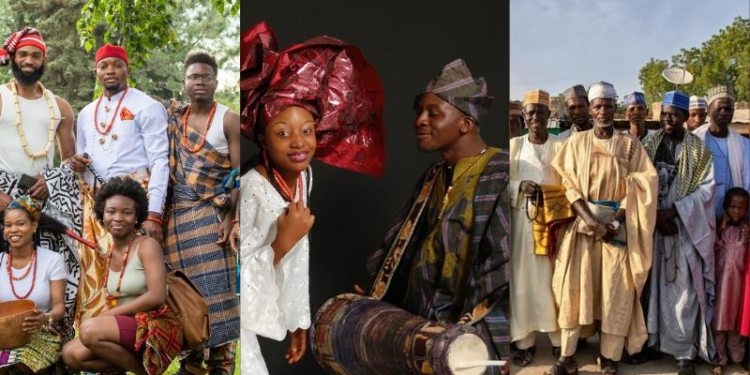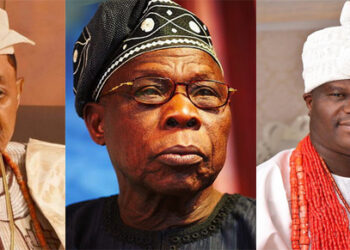You may be wondering which tribes in Nigeria have the most wealth and influence. Well, let’s take a look at the top 10 richest tribes in Nigeria in 2024 based on current economic factors! We’ll examine what’s contributing to these tribes’ prosperity and how it may shape Nigeria’s future. From business moguls to oil riches, find out who is poised to lead the pack. You might be surprised where some of these names fall as we reveal the rankings. By the end, you’ll have fresh insight into wealth distribution between Nigeria’s diverse tribes.
Understanding the Various Tribes in Nigeria
Nigeria has over 250 ethnic groups, each with its own unique culture, language, and beliefs. The major tribes are:
The Hausa-Fulani are the largest ethnic group, making up 29% of the population. They are predominantly Muslim and based in northern Nigeria. The Hausa people are known for their architecture, traditional dress, and music.
The Yoruba tribe accounts for 21% of Nigerians. They live mainly in southwestern Nigeria and are 50/50 Christian and Muslim. The Yoruba are one of the most urbanized and educated groups and are influential in Nigerian politics, arts, and business.
The Igbo tribe is the third largest, with 18% of the population. They are mostly Christian and reside in southeastern Nigeria. The Igbo people are known for their entrepreneurial spirit, and the Igbo language is the most widely spoken native language after Hausa and Yoruba.
The Ijaw tribe lives along the Niger Delta and makes up 10% of Nigerians. They are predominantly Christian and known for their fishing communities. The Ijaw people have been advocating for greater control of the oil resources in their region. There are also many smaller tribes like the Tiv, Nupe, Igbomina, Jukun, Igala, and Idoma, each with their own cultural identities.
Nigeria’s diversity of tribes, languages, and cultures is fascinating yet complex. Inter-ethnic tensions have at times threatened Nigeria’s unity, but when harnessed positively, this diversity gives Nigeria a vibrant mix of traditions, arts, music, languages, festivals, and food. Understanding Nigeria’s tribes is key to understanding the country as a whole.
Factors Contributing to Tribal Wealth in Nigeria
Nigeria is made up of over 250 ethnic groups, each with its own unique culture, tradition, and source of income. Some tribes have become quite affluent over time due to key factors like:
- Agriculture and livestock: Certain tribes, like the Hausa and Fulani, have a long history of farming and cattle rearing, which provides resources and jobs. Their agricultural produce and livestock are traded domestically and internationally, generating wealth.
- Oil production: The Niger Delta region is home to several tribes, like the Ijaw, Itsekiri, and Urhobo tribes, who have benefited from the oil boom. They receive oil derivation funds and also have community members employed in the oil industry.
- Trade and commerce: Tribes like the Igbo and Yoruba have been engaged in buying and selling goods for centuries. They control major markets and trade routes in Nigeria, which has translated into commercial success and wealth over generations.
- Education: Some tribes, notably the Igbo and Yoruba, value Western education highly. They have high literacy rates and many members who are professionals, civil servants, and business leaders. This contributes to their economic advancement.
- Location: Certain tribes occupy land that contains valuable natural resources or that provides opportunities for trade, tourism, and commercial activities. Their location has enabled them to prosper economically over time.
- Political influence: A few major tribes have held onto political power, which they have leveraged to acquire wealth and distribute resources mostly to their tribespeople. This has strengthened their tribes economically.
- Investments: Wealthy individuals from various tribes invest in real estate, the stock market, government bonds, and other ventures that generate wealth that often benefits their wider communities.
- Family support: Most Nigerian tribes have strong family and community bonds. Wealthy and successful members support their extended families and communities financially, which spreads wealth within the tribe.
- Culture: Some tribal cultures promote values like hard work, entrepreneurship, wealth creation, and generosity, which produce prosperity over generations. These cultural traits have made them affluent relative to other tribes.
The Top 10 Richest Tribes in Nigeria
Nigeria is home to over 250 ethnic groups, each with its own vibrant culture, traditions, and wealth. Some tribes have leveraged their resources and connections to build massive fortunes. Here are the 10 richest tribes in Nigeria today based on their overall economic standing and affluence.
Igbo Tribe
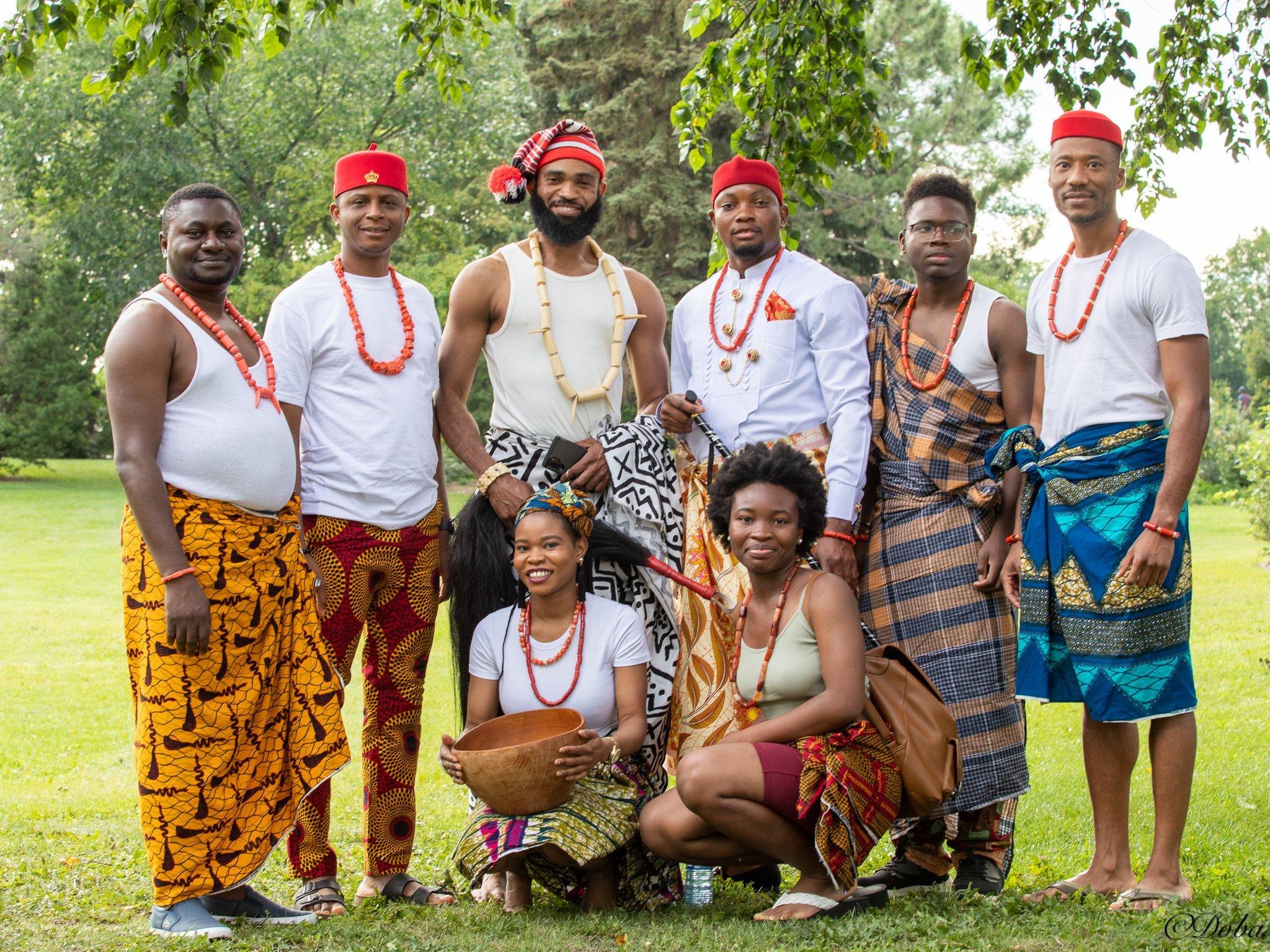
The Igbo tribe is one of the largest ethnic groups in Nigeria, making up about 18% of the population. The Igbo homeland is in southeastern Nigeria, and the Igbo people are known for their entrepreneurial and commercial spirit. This has led the Igbo tribe to become one of the wealthiest in Nigeria.
The Igbo people are industrious, hardworking, and highly enterprising. They are risk-takers and natural-born businessmen. The Igbo tribe places high importance on commerce, trade, and education. Igbo culture also emphasizes community and hospitality.
Contributing Factors
Several factors have contributed to the wealth of the Igbo tribe:
- They were exposed to Western education and Christianity early on, giving them an advantage in business and trade with the British.
- After the Biafran war, the Igbo people worked hard to rebuild their lives and businesses. This led to economic growth in the region.
- The Igbo homeland has oil resources and fertile land suitable for farming cash crops like yams, cassava, and palm produce. This provides economic opportunity.
- The Igbo people have a strong entrepreneurial spirit and are adept in trade, commerce, and business. This has fostered the establishment of successful Igbo-owned companies and conglomerates.
Industries
The major industries of the Igbo tribe are:
- Oil and gas: The Igbo homeland produces oil, and many wealthy Igbo individuals have investments in oil and gas.
- Agriculture: The Igbo people farm cash crops like yams, cassava, palm produce, and more. These contribute to the economy.
- Trade and commerce: The Igbo people have a strong tradition of trade and business. Major Igbo cities like Aba and Onitsha are commercial hubs.
- Conglomerates: Wealthy Igbo businessmen have established large companies that span industries like oil & gas, banking, aviation, and automobiles. These conglomerates generate profits and employ many people.
Some of the richest people in Nigeria are from the Igbo tribe, like billionaire businessman Arthur Eze, billionaire oil tycoon Emeka Offor, and billionaire investor Tony Elumelu. These men have built immense wealth through business, investments, and entrepreneurship. Their success stories inspire other Igbo people to pursue commerce and trade.
Yoruba Tribe

The Yoruba tribe is one of the largest ethnic groups in Nigeria, making up about 21% of the total population. They are located predominantly in western Nigeria, in states like Oyo, Osun, Ogun, Ondo, and parts of Kwara and Ekiti.
The Yoruba people are known for their vibrant culture, with an emphasis on family, religion, and tradition. They have a hierarchical class system and a strong belief in reincarnation. The Yoruba language is a tonal language and Yoruba art, especially wood carving and their traditional cloth called Aso Oke, are famous worldwide.
Contributing Factors to Wealth
- Agriculture and trade: The Yoruba were prominent traders and farmers. They grew cocoa, palm oil, cotton, and rubber, which were major contributors to the economy.
- Education: The Yoruba value education highly. Early exposure to Western education gave them an advantage in fields like law, medicine, and engineering.
- Entrepreneurship: The Yoruba are very business-oriented. Major Yoruba-owned conglomerates today include Globacom, Oando, Conoil, and Honeywell Group.
Key Industries
- Oil and gas: Many wealthy Yoruba individuals made their fortune from oil and gas. People like Mike Adenuga of Conoil and Femi Otedola of Forte Oil built billion-dollar empires in the petroleum industry.
- Finance and banking: Yoruba men like Subomi Balogun and Tony Elumelu founded leading banks like First City Monument Bank and United Bank for Africa.
- Telecommunications: Mike Adenuga’s Globacom is a major telecom company providing mobile phone and internet services across Nigeria.
Some of the richest Yoruba men today include Mike Adenuga, with a net worth of over $6.2 billion, Femi Otedola, with $1.1 billion, and the current President of Nigeria, Asiwaju Bola Ahmed Tinubu, with $9 billion. These men have built highly successful conglomerates and inspired many other Yoruba entrepreneurs and politicians.
The Yoruba tribe has a vibrant economy with many wealthy and influential individuals coming from industries like oil, banking, trade, and tele
Hausa Tribe
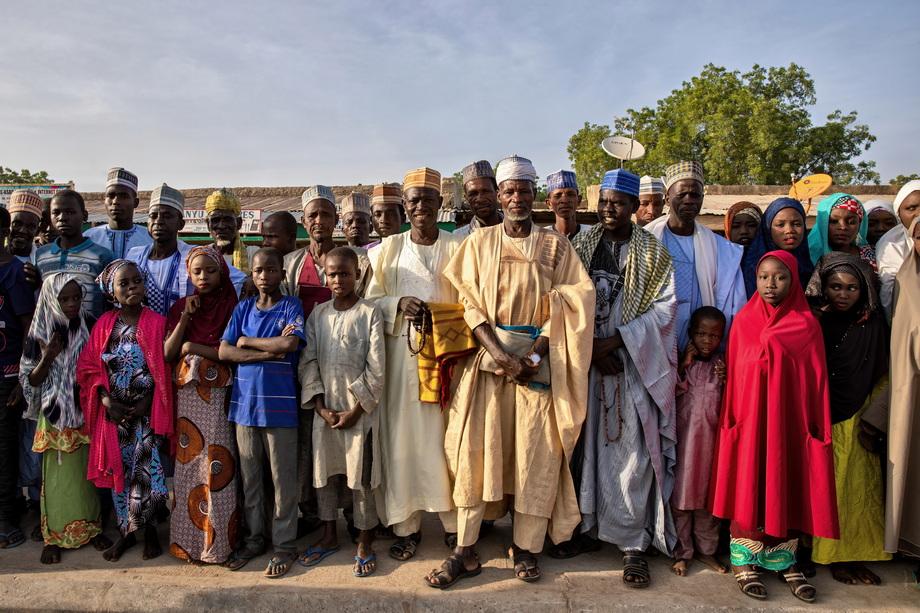
The Hausa tribe is the largest ethnic group in Nigeria, making up about 25% of the population. Located primarily in northern Nigeria, the Hausa are known for being prosperous traders and businessmen. Several factors have contributed to the wealth of the Hausa tribe:
- Prominent trading centers: Major cities like Kano, Kaduna, and Sokoto have served as important trading hubs for centuries. The Hausa controlled much of the trade in products like leather, textiles, and agricultural goods across West Africa.
- Large livestock holdings: The Hausa tribe has traditionally owned large herds of cattle, goats, and sheep, which provide a source of food, trade, and wealth. Livestock farming continues to be an important part of the Hausa economy.
- Agricultural production: The Hausa grow crops like millet, sorghum, corn, and groundnuts, which thrive in the northern region. These cash crops are traded locally and exported, generating substantial income for the tribe.
- Enterprising spirit: The Hausa are known for their business savvy and ability to generate wealth through entrepreneurship and commerce. This has allowed notable individuals and families to amass considerable fortunes over generations.
Some of the most prominent industries and companies in the Hausa tribe are agriculture, finance, and telecommunications. Wealthy and influential individuals include Aliko Dangote, Africa’s richest man and owner of the Dangote Group conglomerate, as well as former military leader Ibrahim Babangida.
The Hausa tribe has a long history of generating wealth through strategic location, natural resources, and an enterprising spirit. With prominent business leaders and continued economic growth, the Hausa are likely to remain one of the richest and most prosperous tribes in Nigeria for generations to come.
Fulani Tribe
The Fulani tribe is the largest semi-nomadic group in West Africa, found across Nigeria, Niger, Chad and other countries. In Nigeria, the Fulani people make up the largest minority tribe and are quite wealthy, known for owning large herds of cattle.
The Fulani people are traditionally pastoralists, raising cattle, goats and sheep. They are often nomadic, traveling long distances with their herds in search of fresh grazing land and water. The Fulani are also commonly found in urban areas and are involved in business, trade, and commerce. They place a high value on education and Islam. The Fulani language, Fula, is widely spoken, in addition to Hausa, English, and French.
Contributing Factors to Wealth
The Fulani people are wealthy for several reasons:
- They own large herds of cattle, which are sold for meat, milk, hides, and other byproducts. Cattle is a symbol of wealth and status in Fulani culture.
- Many Fulani people are successful business owners, traders, and merchants in cities and towns. They are known for trading cattle, grains, cloth, and other goods.
- The Fulani tribe has a long history of ruling elite families and kingdoms with access to resources, land,d, and power. Notable wealthy and politically powerful Fulani families still exist today.
- Oil reserves and mining operations are located in Fulani-populated areas of Nigeria, providing job opportunities and financial benefits to the local communities.
Industries
Key industries for the Fulani tribe include:
- Cattle herding and dairy farming.
- Grain farming and trade
- Textile production and trade
- Transportation and trade of goods
- Retail businesses and commerce
- Oil and mining
Notable Wealthy Individuals
Some affluent Fulani individuals are:
- Alhaji Aliko Dangote, billionaire businessman and industrialist, owns Dangote Group.
- Abdulsamad rabiu, a businessman and investor
- Atiku Abubakar, billionaire politician and businessman.
The Fulani people have accumulated wealth through industries tied to their cultural heritage as well as adapting to the business opportunities of the modern economy. Powerful families, lucrative trades, and access to resources have all contributed to the prosperity of this major tribe in Nigeria.
Edo Tribe
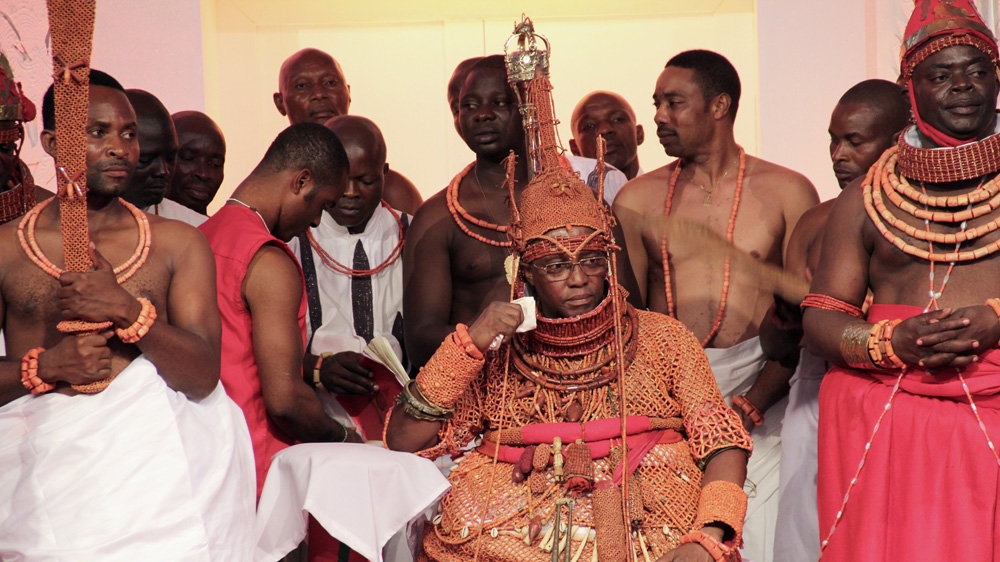
The Edo tribe, also known as the Bini tribe, is one of the richest tribes in Nigeria. Their wealth comes from various sources, including:
- Oil and gas: The Edo state has large oil and gas reserves, which provide economic opportunities and jobs for its people. Many Edo indigenous people work in the oil and gas industry, earning high salaries.
- Trade and commerce: The Edo people have a long history of trade and commerce. Benin City, the capital of Edo state, was an important trading hub for centuries. Today, Edo traders and businessmen continue to dominate trade in cities across Nigeria.
- Agriculture: Edo state has fertile land suitable for farming cocoa, rubber, palm oil, and cassava. These cash crops provide income and jobs for Edo farmers and contribute to the state’s economy.
Some notable wealthy Edo individuals include:
- Gabriel Osawaru Igbinedion, the founder of Igbinedion University.
- Mitchell Elegbe, the second richest man from Edo state, is the CEO and MD of Interswitch.
- Adams Oshiomole is the richest politician in Edo state.
In summary, the Edo tribe is affluent due to the economic opportunities in Edo state, especially in trade, oil, and agriculture. With prominent businessmen like Dangote and Adenuga, the Edo tribe will likely remain one of the wealthiest in Nigeria for years to come.
Isoko Tribe
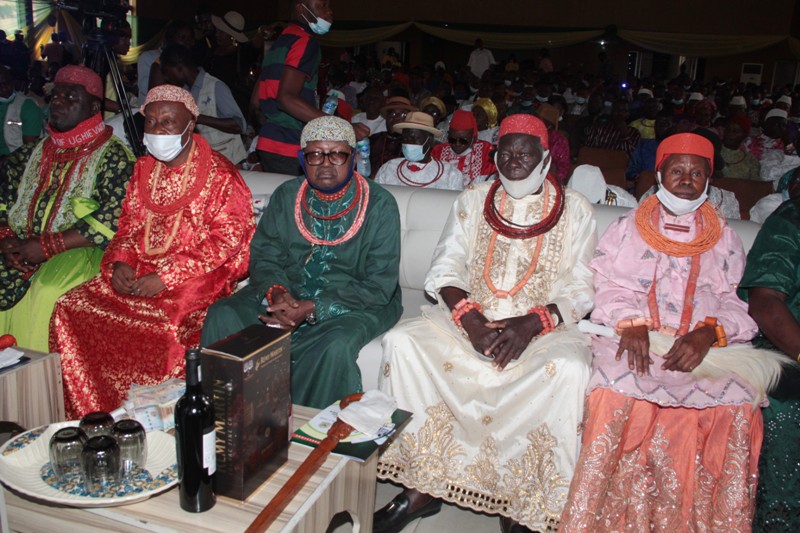
The Isoko people are one of the major ethnic groups in Delta State, Nigeria. They are known for their entrepreneurial spirit, and many Isoko indigenous people have built highly successful businesses. Some of the characteristics that have contributed to their wealth include:
- Hard work and perseverance: Isoko people are hardworking and determined. They push through challenges to achieve their goals and build prosperity.
- Business acumen: Isoko individuals have a keen business sense and ability to spot opportunities. Many are traders, contractors, professionals, and industrialists.
- Strong family bonds: Isoko families are very close-knit and support each other in business and life pursuits. They pool resources together to help each other succeed.
- Education: Isoko people value education greatly. Their high literacy levels have enabled many to attain professional success as doctors, lawyers, engineers, and more.
Some of the major industries that have produced wealthy Isoko individuals are:
- Oil and gas: The Niger Delta region, where Isokos are predominantly from, is the hub of Nigeria’s oil industry. Some Isokos have built successful oil servicing companies and contracting firms.
- Agriculture: Isoko land is fertile, and many wealthy Isokos are large-scale farmers who produce cash crops like cassava, yam, plantain, and palm oil.
- Manufacturing: A number of Isoko industrialists own manufacturing plants that produce goods like furniture, textiles, plastics, and beverages.
- Real estate: The real estate sector has also produced many affluent Isokos who invest in land and property development.
Notable wealthy Isoko individuals include billionaire businessman Igho Charles Sanomi II, founder of Taleveras Group, and Chief Immanuel Emoefe, Managing Director of Portplus Limited. The Isoko tribe is poised to continue producing more high-net-worth individuals as their entrepreneurial spirit and determination see them venturing into new frontiers.
Ijaw Tribe
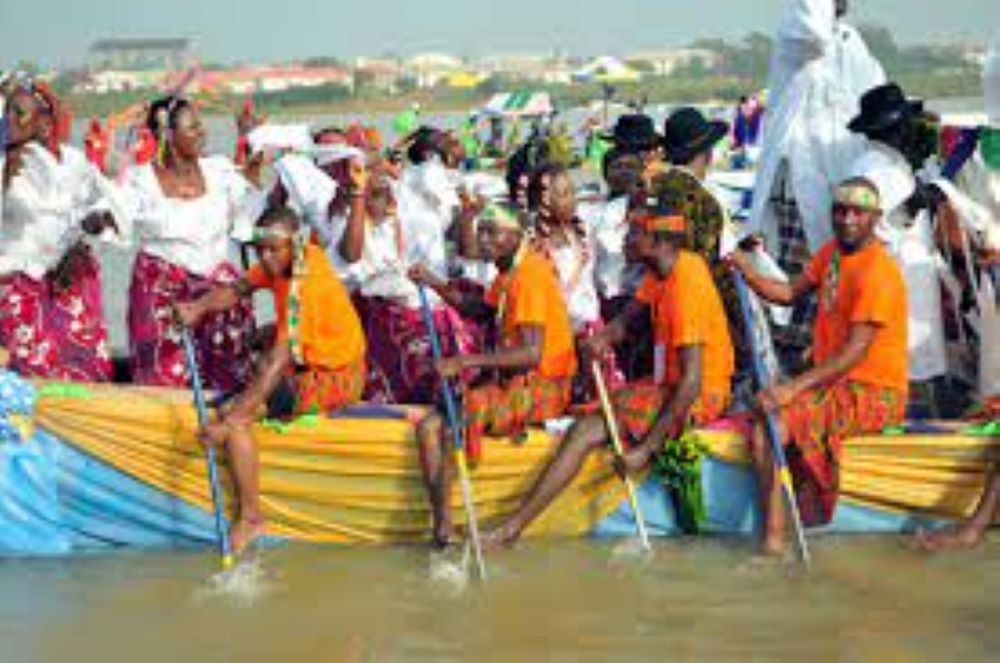
The Ijaw people are one of the largest ethnic groups in the Niger Delta region of Nigeria. They are known for their skills in fishing, boat building, and trade. Several factors have contributed to the Ijaw tribe becoming one of the richest in Nigeria.
Oil Wealth
The Ijaw homeland sits on some of Nigeria’s largest oil reserves, and they have benefited greatly from the oil industry. Many Ijaw work in high-paying jobs in the oil sector or receive payments from oil companies for the use of their land. The Ijaw also gets a large share of the Niger Delta Development Commission budget, which provides funds for local development.
Fishing and Seafood
The Ijaw have a long history of fishing and seafood exportation. They dominate Nigeria’s fishing industry and seafood market. The ports of Warri, Sapele, and Port Harcourt provide access to seafood exports all over the world. Many Ijaws have built successful fishing and seafood businesses.
Notable Wealthy Ijaw Individuals
Some well-known wealthy Ijaw individuals include:
- Chief Edwin Clark is a Nigerian Statesman, Ijaw leader, and politician from Delta State who worked with the administrations of military governor Samuel Ogbemudia and head of state General Yakubu Gowon between 1966 and 1975.
- Chief Immanuel Emoefe, managing director of Port Plus Limited
- Chief Adano Benson is the managing director of Adano Engineering Construction.
The Ijaw tribe has a bright economic future with the potential for further growth in fishing, oil, and other industries. With strong leaders and continued political influence, the Ijaw will likely remain one of Nigeria’s richest and most prominent tribes for generations to come.
Tiv Tribe

The Tiv Tribe is one of the major tribes in Benue state, located in the middle belt region of Nigeria. Tiv tribe is predominantly farmers and is well known for their agricultural prowess. The Tiv tribe is also very industrious and hardworking. Some of the major crops cultivated by the Tiv tribe are Yam, Cassava, Rice, Beans, Maize, and many more. The Tiv tribe is also popular for cattle rearing and poultry farming.
Some notable wealthy individuals from the Tiv tribe are:
- Theophilus Danjuma: He is a retired army general, businessman, and philanthropist. He is the chairman of South Atlantic Petroleum and also has stakes in many other companies. His net worth is estimated to be over $1.1 billion.
- Gabriel Suswam is a former governor of Benue state. He owns several properties and businesses in Abuja, Makurdi, and other parts of Nigeria. His net worth is estimated to be over $150 million.
- Barnabas Gemade: He is a former minister of the Federal Republic of Nigeria and a successful businessman. He owns several hectares of farmland where he cultivates yam, rice, maize, and soybean. He is also into cattle rearing. His net worth is estimated to be over $50 million.
Other factors that have contributed to the wealth of the Tiv tribe are:
- Fertile agricultural land: The Tiv tribe occupies the Benue Valley, which is very fertile and supports large-scale farming.
- Government presence: The Tiv tribe has produced many influential people who have held key positions in government. This has led to the development and establishment of infrastructure in Tiv land.
- Tourism: The Tiv tribe is home to many tourist attractions like the Aper Aku stadium, Benue State University, and the KYEGH SHA SHWA, which is the biggest Tiv cultural festival organized annually across two days to celebrate the rich cultural heritage of the Tiv People worldwide. Which generates revenue for the tribe.
- Advocacy: There are many influential people and groups from the Tiv tribe advocating for the development and empowerment of the Tiv people. This has led to the establishment of industries and the provision of basic amenities.
Kanuri Tribe
The Kanuri tribe is located primarily in Borno Province in northeastern Nigeria. The Kanuri are one of the wealthiest tribes in the country. Several factors have contributed to the tribe’s affluence:
- Agriculture: The Kanuri tribe has fertile land ideal for farming crops like millet, sorghum, corn, and cotton. Many Kanuri people work as farmers and make a good living selling cash crops.
- Fishing and livestock: The tribe also engages in fishing and raising livestock like cattle, goats, and sheep. Fishermen and herders can become quite prosperous.
- Trade: Kanuri traders have traded goods like hides, skins, and agricultural products with neighboring tribes for centuries. Successful businesspeople and merchants have amassed wealth through trade.
- Political influence: Some Kanuri people have held powerful political positions, giving them the means to accumulate wealth.
Notable industries that have produced affluent individuals include:
- Agriculture and agribusiness: Wealthy Kanuri farmers and agribusiness owners have made fortunes from cash crops, food processing, and trade.
- Politics: Influential politicians and government officials have used their positions to gain wealth and status.
- Royal families: Members of Kanuri royal dynasties, like the Sayfawa dynasty, inherited wealth through family lines.
Some of the richest and most prominent Kanuri people today include:
- N: A businessman, oil tycoon, and founder of Oriental Energy Resources with a net worth of $500 million USD.
- Babagana Kingibe: A politician who served as the monster of foreign affairs. He has acquired substantial wealth and property over his career.
In summary, through politics, trade, agriculture, fishing, and other industries, the Kanuri tribe and notable individuals have achieved great prosperity and affluence. With political influence and control of resources, the Kanuri tribe is poised to remain one of the wealthiest in Nigeria for years to come.
Ibibio Tribe
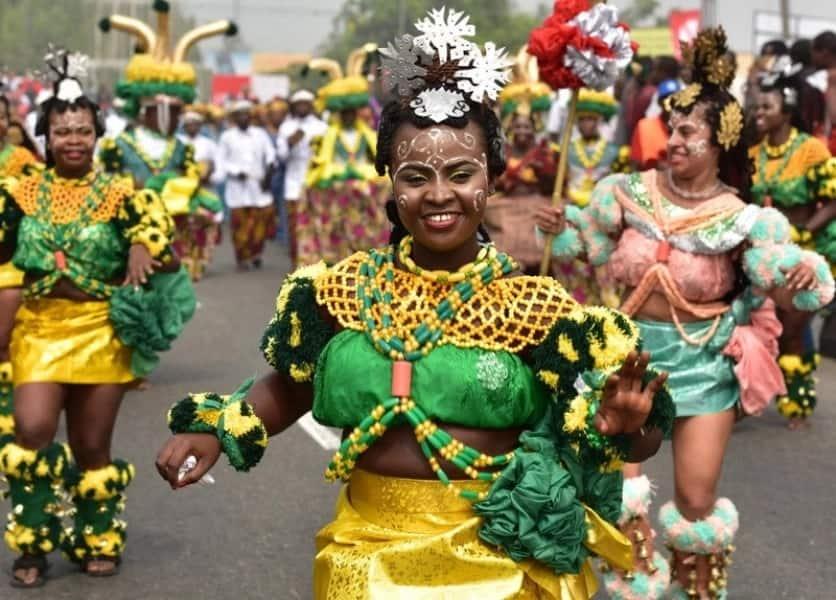
The Ibibio are a coastal people from southern Nigeria. They are primarily found in Akwa Ibom, Cross River State, and the eastern part of Abia State. The Ibibio tribe is one of the richest tribes in Nigeria, known for their business acumen and entrepreneurial spirit. Here are some key characteristics of the Ibibio people that have contributed to their wealth:
- They are industrious and hardworking. The Ibibio people are skilled craftsmen, farmers, and traders. They dominate industries like farming, fishing, palm oil production, and trading.
- They value education and professional success. The Ibibio tribe has a high literacy rate, and many pursue higher education and white-collar jobs. This has allowed many to build successful careers and businesses.
- They have strong community and cultural ties. The Ibibio people maintain close family and community bonds. They support each other in business and personal endeavors through mentorship, investment, and partnerships.
Some major industries that have produced wealth for the Ibibio tribe:
- Palm oil production: The Ibibio tribe is a major producer of palm oil, a commodity in high demand. Many have built plantations and processing plants.
- Trading: The Ibibio people have a long history of trading goods like palm oil, timber, and agricultural produce. Many Ibibio traders have become very prosperous.
- Professional services: Many Ibibio people have built successful careers as doctors, lawyers, accountants, professors, and civil servants. Their high-paying jobs and businesses have contributed greatly to the tribe’s wealth.
Some notable wealthy Ibibio individuals:
- Obong Victor Attah is the former governor of Akwa Ibom State, businessman, and philanthropist. He owns several businesses.
- Udom Inoyo: He is a Doctor of Law, administrator, and an accomplished energy industry professional with a legacy of outstanding leadership in community service and advocacy. He previously worked as an executive at Mobil Producing Nigeria for over 20 years.
The Ibibio tribe’s prosperity can be attributed to their hard work, community values, and dominance in key industries like palm oil, trading, and professional services. With notable figures like Dr. Udom and Obong Attah, the Ibibio tribe is poised to remain one of the wealthiest and most influential tribes in Nigeria for years to come.
Conclusion
In conclusion, a combination of historical, geographical, political, and social factors has enabled certain Nigerian tribes to gain wealth over time through agriculture, trade, natural resources, education, investments, and more. Their prosperity continues to grow and spread within their communities.
